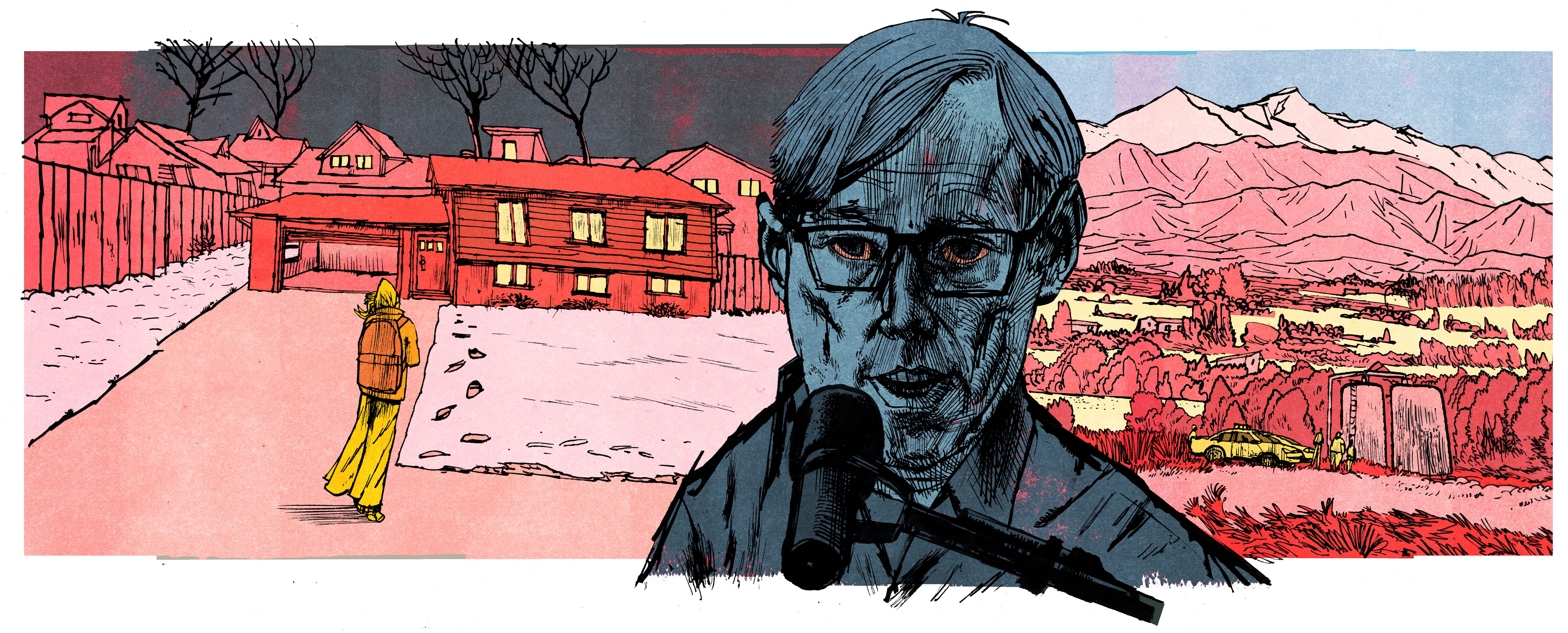The True-Crime “Podcast Junkie” Turned Real-Life Murder Suspect
Is Steve Pankey a cold-blooded killer who got away with murder for decades, or just a true-crime obsessive craving attention?
One day in late 2020, Robin Warder, host of the true-crime podcast The Trail Went Cold, noticed something odd as he scrolled through a summary of listeners who support his show through Patreon. One subscriber, Steve Pankey, had the same name as a person of interest in the unsolved 1984 disappearance of Jonelle Matthews, a lesser-known case that Warder’s show had been the first podcast to cover.
As Warder’s podcast detailed in a 2017 episode, Matthews had gone missing from her home in Greeley, Colorado, following a Christmas concert in 1984. She was 12 years old at the time and had presumably been kidnapped. For 35 years, no clues were ever uncovered that revealed what had happened. But then two completely unexpected things happened.

First, in April 2019, Steve Pankey made an unsolicited call to investigators with offers to divulge what he knew about the disappearance. Pankey, a former Greeley resident, had not been on investigators’ radar, but they were obviously intrigued by his offer, especially when they realized that he’d been making similar offers for years yet somehow had never attracted much interest. Then, just three months later, in July 2019, a crew digging an oil pipeline in a rural area around 18 miles southeast of Greeley accidently discovered Jonelle’s remains. Forensic analysis determined that Matthews died by a single gunshot wound to the head. The cold case was thrust back into the spotlight, and a few months later, Pankey, at the time 68, became the first person of interest publicly named since the investigation began.
Pankey had moved to Idaho a few years after Jonelle Matthews went missing. A self-described “eccentric,” he twice ran as a long shot candidate for Idaho governor. He also self-published a book called Graveyards about a small-town murder, featuring characters with the same names as locals from Greeley. More recently, he had became a “podcast junkie” (his own words) and supported several true-crime podcasts through Patreon besides The Trail Went Cold, including Already Gone, The Vanished and Trace Evidence.
“I’ve never really experienced anything like this before,” Warder says. “I’ve talked to people who have had personal connections to a case, maybe knew the victims or knew some of the criminals involved, but this is the first time I ever got conclusive proof that someone who actually was charged with one of the crimes that I covered was actually listening to my show.”
Then, in October 2019, Pankey did something quite unusual for a potential suspect in a murder: He started giving interviews to podcasts and news outlets, telling his side of the story. On Unfound, a podcast dedicated to covering missing persons cases, host Ed Dentzel agreed to have Pankey on the program, and, over a three-and-a-half-hour conversation, Pankey related his history in Greeley, his knowledge of the Jonelle Matthews case, and his interactions with police regarding the investigation. He sounded thoughtful but open, like a politician affirming he had nothing to do with a scandal but who nonetheless doesn’t mind the chance to talk at length about his noninvolvement. He discussed his previous run-ins with the law while living in Greeley, but he insisted he’d never heard of the Matthews family until news broke that Jonelle was missing, and that he had absolutely nothing to do with her disappearance and death.
The detectives who were investigating Pankey were unimpressed by his version of events, but they were very interested in the fact that he’d said them. Despite finding her remains, they still had no murder weapon, no DNA, and no witnesses who had seen what happened to Jonelle. But now, Pankey’s unfiltered statements compounded his already-suspicious eagerness to talk about the case, providing a detailed account of his version of events that they could cross-check against their own investigation.
The motives behind Pankey’s desire for publicity seemed particularly sinister when he was ultimately arrested for kidnapping and murder and extradited to Colorado to stand trial. In court, the prosecution and defense both attempted to answer the question of why a person of interest in a current murder investigation would volunteer to do such public interviews, and furthermore, why he would pick a true-crime podcast as his platform.


